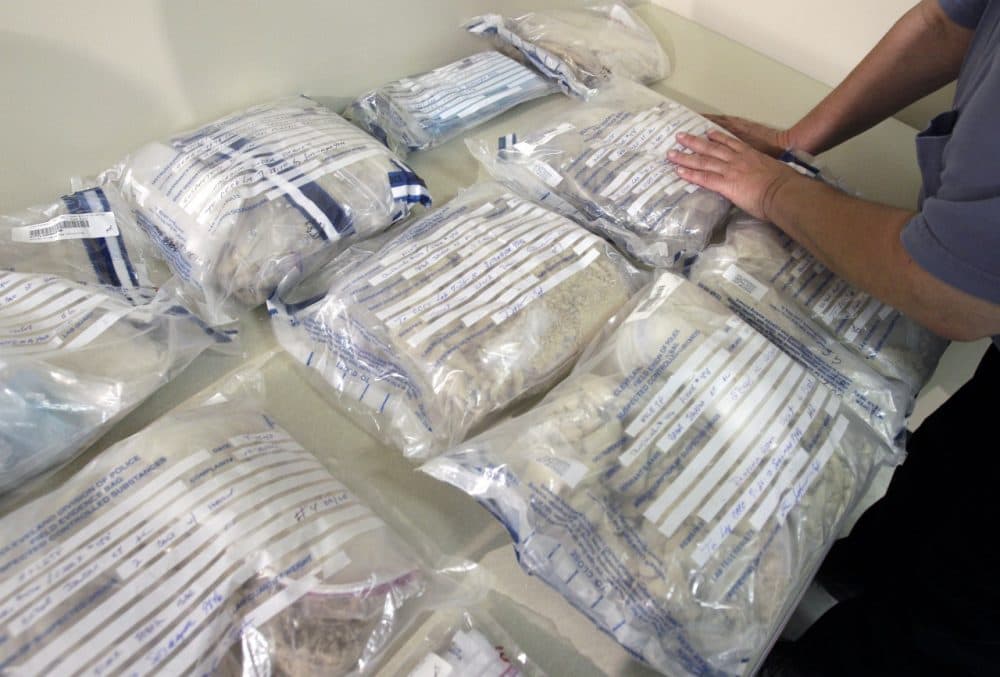Advertisement
Should We Decriminalize Heroin? Former Detective Lieutenant Says 'Yes'

Massachusetts has recently been overwhelmed by the opiate abuse crisis. This spring, Gov. Deval Patrick declared a state of emergency and pledged $20 million to increase treatment and recovery services.
Local communities have been hard hit — Taunton saw 123 overdoses by March, seven of which were fatal. The state's second largest city, Worcester, saw nine deaths from drug overdoses in a one week period earlier this month and police have reported about 300 overdoses thus far this year.
But this week, Jack Cole, a veteran narcotics cop wrote in The Boston Globe that he spent years chasing buyers and sellers, "slamming them into the criminal justice system." He says we should step back from zero-tolerance when it comes to opiates if we want to curb drug use. "I did more harm than good," Cole writes. "And the harder my colleagues and I tried, the more damage we did."
Cole suggests something radical: end what he calls "zero-tolerance prohibition" on opiates and create "free zones" — supervised injection sites where people "sadly but safely meet their heroin addiction."
Guests
Jack Cole, former New Jersey police officer and chair of the advocacy group, Law Enforcement Against Prohibition. He tweets @jackacole.
David Murray, former chief scientist and later associate director of supply reduction for the Office of National Drug Control Policy under President Bush and President Obama. He is now a senior fellow at the Hudson Institute in Washington.
More
The Boston Globe: End The Prohibition Of Heroin
- "The costs of the drug war have been enormous and with nothing to show in terms of increasing public safety. The US judicial system is overwhelmed with drug offenses. Yet, in just one example, Edward Walsh, Taunton’s police chief, recently admitted that a high-profile — and presumably resource-intensive — arrest of a major dealer failed to reduce either drug use or street prices, and that is precisely the opposite of what drug warriors promise."
Radio Boston: Worcester Sees Spike In Suspected Drug Overdose Deaths
- "Taunton, which had the dubious distinction of being ground zero of Massachusetts’ opiate abuse crisis, has seen a marked decline in overdoses and fatalities."
This article was originally published on August 27, 2014.
This segment aired on August 27, 2014.